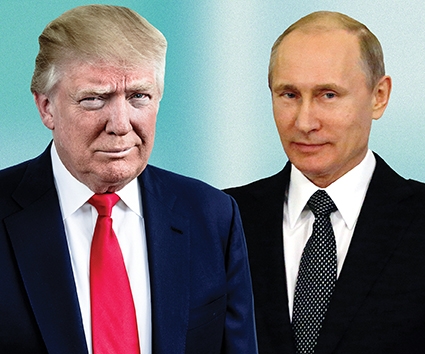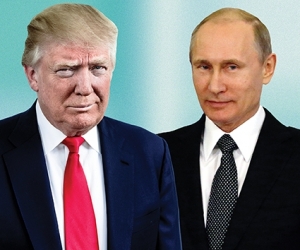Hard Reality Behind the Rhetoric ahead of the Trump-Putin Meeting
World leaders of G20 will gather in Hamburg on July 7-8 to discuss world affairs ranging from the economy in Europe to the military situation in the Middle East. The questions have until now been quite often on the agenda of similar world events and therefore should not be considered as a particular surprise. However, what is more urgent is the upcoming meeting between Trump and Putin on the sidelines of the Hamburg Summit. It will be the first face-to-face encounter between the leaders since Trump’s election.
Relations between Russia and the US are at their lowest since the end of the Cold War and both presidents have at least rhetorically expressed their hope to improve them. However, both Putin and Trump also see the heavy burden of making progress in bilateral relations. As realists, they both see a whole spectrum of problems ahead, ranging from Ukraine and Syria, military build-up in Eastern Europe to Russian movements in Georgia’s breakaway territories. These divergences make it highly unlikely that the parties will find even a partial solution to their conundrum in the near future.
Indeed, as I wrote a week ago, Ukraine remains a sore point between Moscow and Washington due to Russian military and economic support of eastern Ukraine’s breakaway territories.
Any progress on the issue will be unlikely to happen as Russian and US interests are highly divergent, with both pursuing their own geopolitical goals. For Russia, Ukraine is important both economically and strategically: even without Poland or the Baltic States, Russia retains the status of a “Eurasian Empire”. Without Ukraine, Russia will increasingly become a state with more borders in Asia than in Europe. This will in turn make Russia more heavily involved in long-term Islamic conflicts along its entire southern border. Although there have already been several examples of Slavic countries (Slovenia, Poland, Czech Republic, etc.) joining the EU and NATO, Ukraine following their path will irreversibly undermine the notion of the so-called “Slavic Union” and would leave Russia with just its Belarus brethren.
For the US, keeping Ukraine is a strategic imperative as it tries to prevent the resurgent Russia from projecting its influence in its immediate neighborhood. Restoration of Russian influence over the Ukraine territory would increase Moscow’s projection of power over the Black Sea and the South Caucasus, and will threaten Eastern European security.
In Syria, Moscow and Washington remain entangled in what is essentially a proxy war. The Kurds are now playing a more important role with American arms, while Iran is increasing its rhetoric against the White House. Moscow and Washington are on different sides of the war, making it very difficult to find a solution. Russia also failed to use its involvement in the Syrian war as bargaining chip in the negotiations on other issues such as Ukraine.
Even in Georgia, which does not feature high in relations between Moscow and Washington, differences remain as deep as ever. The country remains pro-western and the US has been open in its support for the country’s territorial integrity. Moreover, US Vice President Michael Pence’s visit to Tbilisi, as a part of a journey across Eastern Europe, is yet another sign of support. For the US, keeping the Georgian transit corridor is vital as it serves as potential to at least challenge the EU’s Russian energy issue.
Both countries also have different visions about the Black Sea region, where Russia continues to build up its naval capabilities and project its power through the Crimean Peninsula. The US, on the other hand, pursues a policy of providing Black Sea states with arms to support their defense potential. Allowing the Black Sea to fall entirely into the Russian orbit will create fundamental problems for the US’ policy of containment of Russia in the Eurasian heartland.
Despite the positive rhetoric of the US and Russian presidents of the past six months, it will be very difficult to see any meaningful progress on any issues which were outlined above. Geopolitical differences will remain paramount behind positive statements in Hamburg.
Emil Avdaliani












